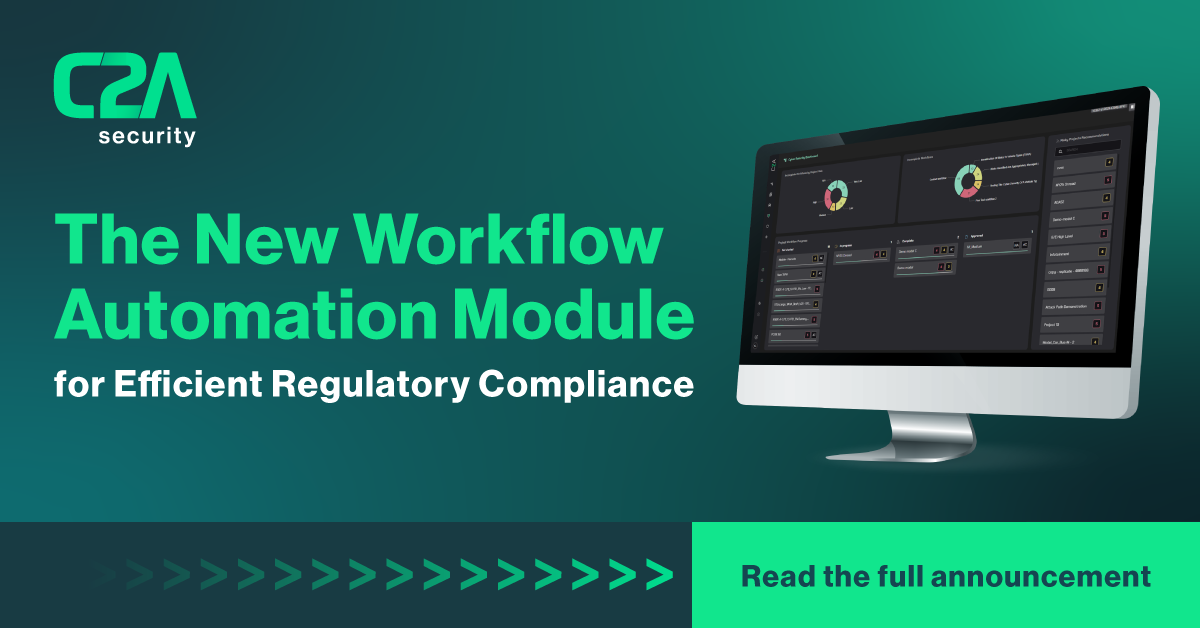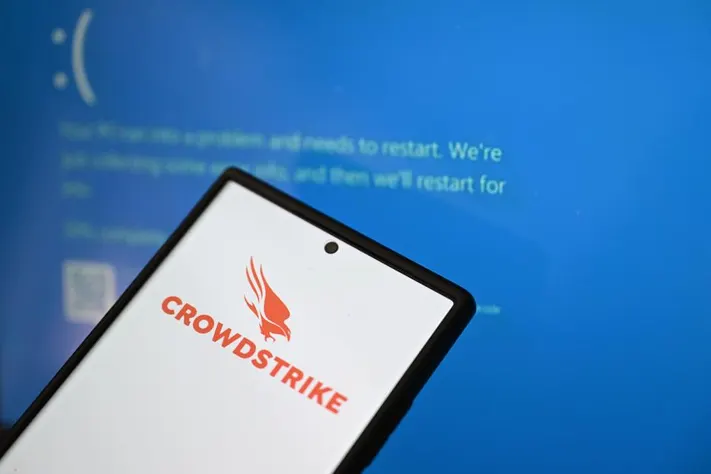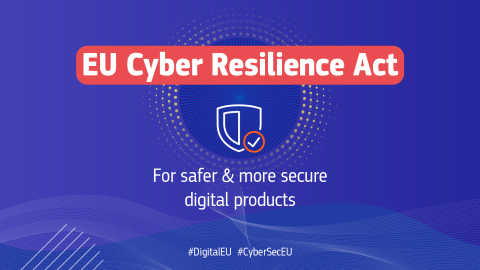C2A Security’s CEO, Roy Fridman, had the pleasure of sitting with Alexander Hitzinger, who recently joined our advisory board, for a 1-on-1 discussion about the industry.
Alexander is an automotive veteran with two decades of experience in senior leadership roles with Volkswagen, Apple, and Porsche. Before joining C2A Security’s Advisory Board, Hitzinger was the VW Group Senior Vice President of Autonomous Driving, leading the company’s efforts to develop and commercialize autonomous vehicles.
In this interview, Roy talks with Hitzinger about his vision for the automotive industry, his predictions for the next evolution of the software-defined vehicle, and what it takes to balance innovation and risk-taking with the need for stability and reliability in the industry.
Roy Fridman (Roy): What’s your opinion about Israel’s role in the global tech industry, specifically in the automotive industry?
Alexander Hitzinger (Alex): Israel plays a critical role in the global tech industry, and this is particularly true when it comes to the automotive industry. As you know, I am actively involved in Israeli tech through my board memberships at Arbe (NYSE: ARBE) and Fortellix.
Israel is known for its innovation and expertise in cybersecurity, artificial intelligence, and machine learning, which are increasingly important in the automotive industry. Israeli startups and companies are at the forefront of developing advanced technologies and solutions for the industry, which has not gone unnoticed by the global automotive community.
Furthermore, Israel’s strategic location and close ties with Europe and the United States make it an attractive destination for automotive companies looking to establish a presence in the region. This has led to establishment of several R&D centers and partnerships between Israeli startups and global automotive giants.
As the automotive industry continues to evolve and become increasingly connected and software-defined, Israeli companies and startups will play an increasingly important role in shaping its future.
Roy: Why are software and electrification both areas where a lot of disruption is happening today, and what can we expect to see in the near future?
Alex: Both areas are experiencing tremendous disruption, and it’s no surprise they are intertwined.
Electrification is critical because it represents a fundamental change in how we power vehicles, offering significant benefits in terms of efficiency, emissions, and performance, which are all driving factors for consumers, governments, and manufacturers alike.
On the other hand, the software is equally important because it enables the advanced features and functionalities consumers expect in modern vehicles. The software is the key enabler for these innovations, from advanced driver assistance systems (ADAS) to infotainment and connectivity.
Looking to the future, I believe we’ll continue to see major disruption in both areas. In electrification, we’ll see advancements in battery technology, electric powertrain technology such as motors and inverters, charging infrastructure, and generally increased adoption of electric vehicles (EVs) as costs continue to decrease. In software, we can expect to see more sophisticated ADAS and autonomous driving features and improved infotainment and connectivity.
However, with these advancements come significant challenges, particularly around cybersecurity. As vehicles become more connected and software-dependent, the risk of cyber-attacks increases, which is where companies like C2A Security play a critical role in ensuring the safety and security of these systems.
Overall, I believe car makers must strengthen several key domains in the short term, two of which are utilizing software automation tools and building a sense of trust with consumers in their transformation into mobility companies. Trust is closely intertwined with security, so I’m incredibly excited to work with you and the team to help navigate this rapidly evolving landscape.
Roy: Tell us about your vision for the automotive industry.
Alex: My vision for the automotive industry is one where vehicles are safer, more sustainable, more efficient, more connected, and more secure. Safety is always the top priority. I envision a future where vehicles are equipped with advanced safety features that leverage the latest technologies, such as AI and machine learning, to prevent accidents and protect passengers.
Sustainability and efficiency are also critical, and I see the industry continuing to shift toward electrification and other environmentally-friendly technologies. This will reduce emissions and create new opportunities for innovation and collaboration across the industry.
I also see the industry moving toward a future where cybersecurity is integrated into every aspect of the design and development process from the ground up. Security is critical to building consumer trust, as car makers are introducing new in-vehicle experiences with premium features and value-add services.
Roy: What is needed in the industry today to ensure secure vehicles?
Alex: That’s a question I should ask you, Roy, as the security expert!
But seriously, I’ll address three things I believe are important for the industry moving forward:
First and foremost, there needs to be a shift in mindset, where cybersecurity is treated as a critical component of vehicle safety during the concept design phase and not just an afterthought. I’ve heard car makers talking about ‘leading with security,’ leveraging cybersecurity as a jumping board to differentiate in the market.
Secondly, empower teams through automation. A recent report predicts there will be 3.5 million unfilled cybersecurity jobs in 2025, a huge talent gap that will continue to grow. Automation and AI are two technologies that help companies address this challenge, and given the complex supply chain of our industry, coupled with increased regulation – car makers will have to leverage these technologies to remain competitive in the market.
Last but not least, implement a risk management methodology around cybersecurity. With the proliferation of software, many car makers will eventually transition into mobility companies, identifying new revenue streams and building stronger relationships with consumers. Understanding your organization’s risk level – its digital and physical ‘products’ combined, will be pivotal to long-term growth. Whoever can’t make that transition will either become a user of somebody else’s platform or disappear.
Roy: How do you balance innovation and risk-taking with the need for safety and reliability in the automotive industry? What strategies have you found effective in achieving this balance?
Alex: Balancing innovation and risk-taking with the need for safety and reliability in the automotive industry is a delicate balancing act that requires a lot of experience and skill.
One effective strategy is establishing a culture of continuous improvement and experimentation, where new ideas and technologies are tested and refined, but always focusing on safety and reliability. This requires a willingness to take risks and learn from failures, but also a strong commitment to quality and the customer experience.
Another important aspect is to invest in the right people and resources, including talent with the right mix of technical and soft skills and the latest tools and technologies. This requires a proactive approach to recruiting and developing talent and building partnerships with other companies and organizations in the industry.
Read our announcement about Alex.




